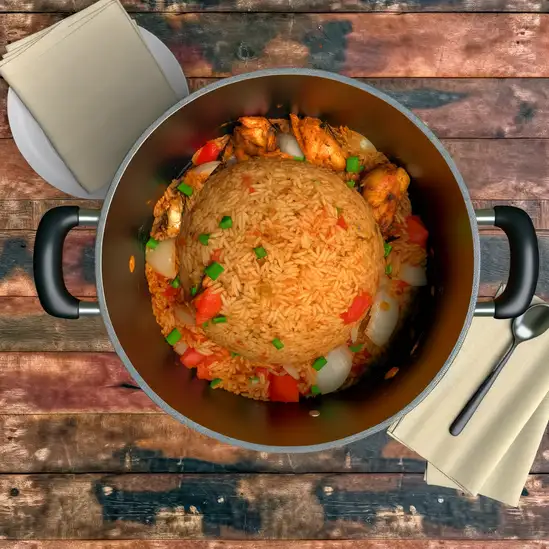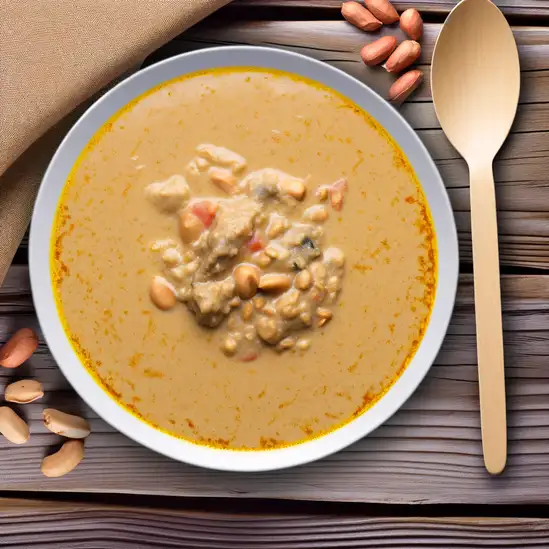



If you ever find yourself in Ghana,Cape Coast is one of those places that wraps around you like a warm,familiar story. The moment you step into the town,there’s this gentle rhythm in the air—waves crashing softly against the shore,children’s laughter echoing through narrow streets,and the scent of spicy street food mingling with salty ocean breeze. It’s a place where history isn’t just in books; it’s alive in the weathered walls of the old forts and the soulful songs drifting from local gatherings. Walking through Cape Coast,you’ll feel the weight and resilience of its past,especially at the Cape Coast Castle. It’s humbling and powerful,a reminder of stories that shaped not just Ghana but the world. But beyond the history,the city pulses with vibrant life—colorful markets bursting with fresh pineapples,handmade crafts,and the chatter of friendly vendors eager to share a smile or a story. Evenings here are something special. Imagine sitting by the beach,the sky painted in shades of orange and pink,the air thick with the aroma of grilled fish and palm wine. Locals gather to dance and drum,their energy infectious,inviting you to join in. Cape Coast isn’t just a destination; it’s a feeling—a blend of reflection,warmth,and celebration that stays with you long after you leave.
The information on this page is currently being reviewed by Tripkliq and should be used as a guide only
Eng word: Hello
Eng pronunciation: Ah-kwah-bah
Local language: Akwabaa
Eng word: Goodbye
Eng pronunciation: Nan-teh yee-yeh
Local language: Nante yiye
Eng word: Thank you
Eng pronunciation: Meh-dah-seh
Local language: Medase
Eng word: How much
Eng pronunciation: Eh-yeh sen?
Local language: Eyɛ sen?
Eng word: Toilet
Eng pronunciation: Chaw ah-fee-chee-reh
Local language: Chɔ afikyire
Eng word: Help me
Eng pronunciation: Boh-ah meh
Local language: Boa me
Eng word: Yes
Eng pronunciation: Ah-neh
Local language: Aane
Eng word: No
Eng pronunciation: Dah-bee
Local language: Dabi
Eng word: Excuse me
Eng pronunciation: Meh-pah woh cheh-oo
Local language: Mepa wo kyɛw
Cape Coast Castle is one of the most significant historical landmarks in Ghana. Built by the Swedes in 1653 and later expanded by the British, it served as a major hub for the trans-Atlantic slave trade. Today, it is a UNESCO World Heritage Site and a museum that educates visitors about the history of the slave trade.
Fort William, also known as Fort Anomabo, was built by the British in 1753. It played a crucial role in the defense and administration of the British Gold Coast. The fort is now a historical site that offers insights into the colonial history of Cape Coast.
St. George's Anglican Church, established in 1752, is one of the oldest churches in Ghana. It stands as a testament to the early Christian missionary efforts in the region and continues to serve as a place of worship and historical interest.
Located near Cape Coast, Kakum National Park is a tropical rainforest reserve known for its rich biodiversity. The park features a famous canopy walkway that offers breathtaking views of the forest and is a popular attraction for nature lovers and adventure seekers.
Founded in 1962, the University of Cape Coast is one of Ghana's leading educational institutions. It has played a significant role in the academic and cultural development of the region, attracting students from all over the country and beyond.
Just a short drive from Cape Coast, Elmina Castle is another UNESCO World Heritage Site. Built by the Portuguese in 1482, it is the oldest European building in sub-Saharan Africa and served as a key trading post and later a center for the slave trade.
The Posuban Shrines are unique to the Fante people of Cape Coast. These colorful and intricately designed shrines are built by the Asafo companies (traditional warrior groups) and serve as places of worship and cultural heritage.
The Cape Coast Lighthouse, built in the 19th century, offers panoramic views of the Atlantic Ocean and the city. It is a historical landmark that guided ships safely to the shores of Cape Coast during the colonial era.
The Fante Confederacy was a coalition of Fante states formed in the 18th century to resist Ashanti domination and European colonialism. Cape Coast played a central role in this confederation, which is an important part of the region's history.
In Cape Coast, the most common Power Adaptor is Type D, Type G.



A beloved West African dish made with rice, tomatoes, onions, and a variety of spices, often served with fried plantains and grilled chicken or fish.

A rich and creamy soup made from ground peanuts, often cooked with meat or fish and served with rice balls or fufu.

A staple Ghanaian dish made from pounded cassava and plantains, served with a flavorful light soup typically made with fish or meat.

A traditional dish consisting of fermented corn and cassava dough served with grilled tilapia fish, often accompanied by a spicy pepper sauce.

Spicy fried plantains seasoned with ginger, pepper, and other spices, often enjoyed as a snack or side dish.

A flavorful spinach stew cooked with tomatoes, peppers, and various meats or fish, typically served with rice or fufu.
.webp)
Grilled skewers of marinated meat, often served with spicy pepper sauce, popular as street food in Cape Coast.
Accra feels like a vibrant heartbeat pulsing through the heart of Ghana—warm,lively,and endlessly inviting. From the moment you step into its bustling streets,you’re wrapped in a tapestry of sounds:the rhythmic chatter of market vendors,the distant hum of highlife music,and the occasional honk of colorful tro-tros weaving through traffic. The air carries a mix of enticing aromas—spicy jollof rice sizzling nearby,fresh grilled fish by the shore,and the earthy scent of rain-soaked earth after a sudden tropical shower.
What makes Accra truly special is its blend of tradition and modernity. You’ll find yourself wandering through vibrant markets like Makola,where fabrics burst with color and artisans craft beautiful kente cloth,then slipping into cozy cafés where young creatives sip on rich Ghanaian coffee while discussing art and politics. The city’s coastline offers a refreshing escape,with Labadi Beach’s golden sands inviting you to relax or join locals dancing to Afrobeat rhythms under the sun.
Accra’s character is deeply rooted in its people—friendly,proud,and full of stories. Whether you’re sharing a laugh over kelewele (spicy fried plantains) or exploring the historic Jamestown district with its colonial architecture and lively street art,you’ll feel a genuine connection to the city’s soul. It’s a place that doesn’t just welcome you—it embraces you,leaving you with a sense of belonging long after you’ve left.
Sekondi-Takoradi has this vibrant,laid-back energy that instantly pulls you in. It’s a coastal city where the salty breeze mingles with the hum of daily life—fishermen hauling in their catch,street vendors calling out their wares,and the distant rhythm of drums from a nearby festival. Walking through the streets,you’ll notice colorful markets bursting with fresh tropical fruits,spices,and handcrafted goods,each stall telling a story of the local culture and creativity.
What really makes Sekondi-Takoradi stand out is its blend of old and new. You can stroll along the harbor,watching fishing boats bob against the backdrop of modern oil rigs,a reminder of the city’s evolving spirit. The architecture is a charming mix of colonial-era buildings and lively street art,reflecting a community proud of its roots yet eager to embrace the future. At night,the city comes alive with music—highlife and Afrobeat melodies spilling from open windows and beachside bars,inviting you to dance or simply soak in the joyful atmosphere.
And then there’s the food—oh,the food! Imagine savoring freshly grilled tilapia seasoned with local spices,paired with a side of kelewele (spicy fried plantains) while the ocean breeze cools your skin. It’s a sensory feast that captures the warmth and hospitality of the people here. Sekondi-Takoradi isn’t just a place to visit; it’s a place to feel,taste,and live for a little while.
The capital city of Togo,Lomé offers stunning beaches,vibrant markets,and a unique blend of French and West African cultures. It’s a great destination for exploring the Gulf of Guinea coastline.
ExploreKnown as the 'Paris of West Africa,' Abidjan is a cosmopolitan city with a lively arts scene,modern skyscrapers,and access to nearby islands like Île Boulay. It’s a top destination for urban exploration and relaxation.
ExploreThe capital city of The Gambia,Banjul is a charming coastal city with access to the nearby Bijol Islands,which are known for their birdlife and pristine beaches. It’s a great spot for eco-tourism and relaxation.
ExploreIf you ever find yourself in Dakar,get ready to be swept up by a city that pulses with energy and warmth from the moment you arrive. There’s this vibrant rhythm in the air—music spilling out from open windows,the chatter of street vendors,and the scent of grilled fish mingling with the salty ocean breeze. Dakar feels alive,like a place where tradition and modern life dance effortlessly together. Walking through its bustling markets,you’ll see colorful fabrics fluttering in the sun,hear the lively bargaining in Wolof,and taste the rich,spicy flavors of thieboudienne,Senegal’s beloved fish and rice dish.
What really makes Dakar special is its people—their friendliness and pride in their culture shine through in every smile and conversation. The city’s art scene is electric,with murals and galleries showcasing bold,contemporary African creativity alongside deep-rooted heritage. At night,the city transforms; the sounds of mbalax music invite you to join locals in dance,and the coastline lights up with cafés and bars where stories flow as freely as the drinks.
Dakar is a city of contrasts and connections—where the Atlantic Ocean meets bustling streets,where history whispers from colonial buildings and the spirit of independence hums in the air. It’s a place that invites you to slow down,soak in the colors,sounds,and tastes,and leave with a heart full of new stories. Trust me,once you’ve felt Dakar’s vibe,it stays with you long after you’ve left.
At popular beaches, scammers may charge tourists 'entrance fees' or fees for using public spaces, which are actually free.
Scammers approach tourists claiming to represent local charities or schools, asking for donations that never reach the intended cause.
Some individuals offer to exchange foreign currency at 'better rates' but use sleight of hand to shortchange tourists or give counterfeit bills.
Vendors may sell counterfeit or low-quality items as 'authentic' Ghanaian crafts, charging much higher prices than they are worth.
Individuals posing as official tour guides approach tourists, offering to show them around Cape Coast Castle or other attractions, then demand exorbitant fees after the tour.
Some restaurants or street vendors inflate prices for tourists, especially if the menu does not display prices clearly.
Taxi drivers may overcharge tourists by not using meters or quoting inflated prices, especially if the tourist is unfamiliar with local rates.
In crowded areas like markets or festivals, pickpockets target tourists who may not be vigilant about their belongings.
Individuals fabricate emotional stories about personal hardships to solicit money from sympathetic tourists.
The use, possession, and trafficking of illegal drugs are strictly prohibited in Ghana, including Cape Coast. The penalties for drug-related offenses are severe and can include long prison sentences and heavy fines. Tourists should avoid any involvement with illegal drugs to prevent legal issues and ensure a safe visit.
In Cape Coast, Ghana, smoking is generally regulated by national laws. Smoking in public places such as restaurants, bars, and public transportation is restricted. There are designated smoking areas where smoking is allowed. Tourists should be mindful of these regulations to avoid fines or penalties.
Vaping is relatively new in Ghana, and specific regulations may not be as well-defined as those for smoking. However, it is advisable to follow the same rules as smoking, avoiding vaping in public places and using designated areas if available. Tourists should exercise caution and respect local customs and regulations.
What are other people saying about Cape Coast?
Recent Social posts about Cape Coast
There is nothing to show you for now.